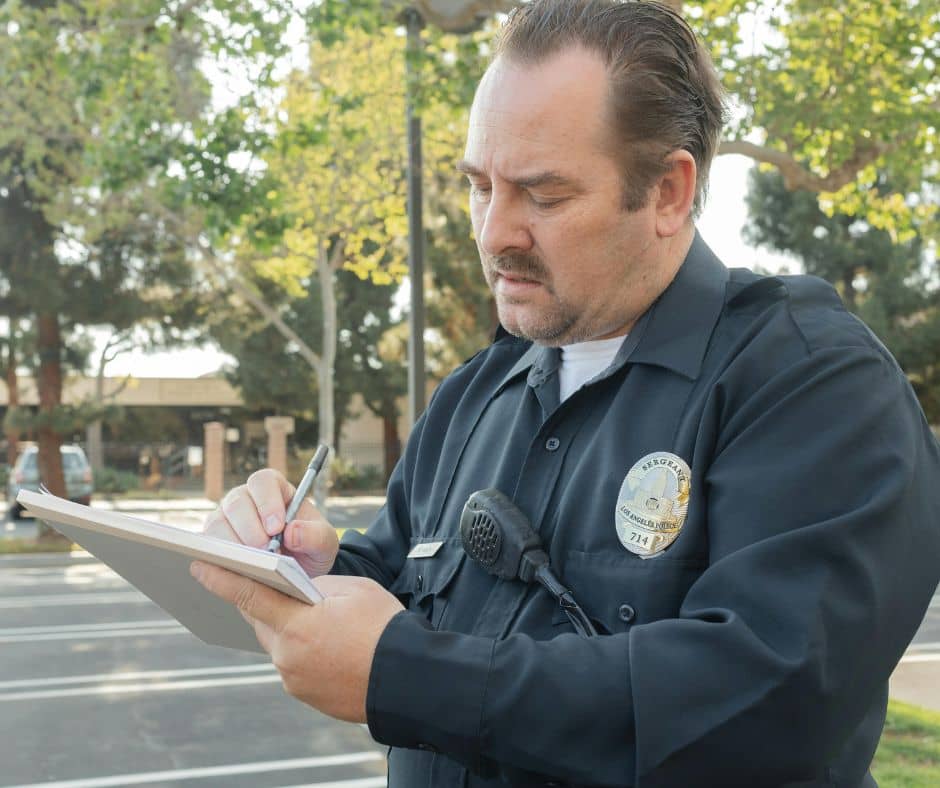5 Signs the Police are Investigating You for Drugs

Being investigated for drug crimes by law enforcement is an extremely serious situation that demands your full attention. Police build these cases discreetly, often leaving suspects unaware of the investigation until charges are filed. By then, it could be too late to mount an effective defense.
The key is to recognize the early warning signs that you’re the target of a drug investigation. In this blog post, we’ll cover five major red flags that authorities are building a case against you for drug-related charges. If you identify any of these signs, seek legal counsel immediately to protect your rights and freedom.
#1 Sudden Increased Police Presence/Surveillance
One of the biggest red flags that law enforcement has zeroed in on you for a drug investigation is a noticeable uptick in police presence and surveillance activities around your home, workplace, hangouts, etc. This could include unmarked cars constantly posted up to monitor comings and goings, officers frequently driving by slowly and seeming to take notes, or apparent undercover cops loitering in the area.
Police will deploy advanced surveillance tactics like camera monitoring, following suspects, trash pulls, and using informants or undercover buys to build a strong case before making arrests. So if you’re suddenly being watched like a hawk, it’s a major warning sign you’re in their crosshairs.
#2 Your Friends/Associates Have Been Arrested
Another potential sign of a larger drug investigation is if people in your social circle or known associates have recently been arrested on narcotics charges. This could indicate law enforcement is working its way up the chain by flipping those lower on the distribution ladder. They may be leaning on your friends to become informants in exchange for leniency.
Even if you think your own activities are relatively minor, being loosely tied to a bigger operation can still land you in hot water. So pay close attention if those around you are getting swept up, as you could be next.
#3 You’ve Received a Grand Jury Subpoena
Few things are as frightening as being served a subpoena to testify before a federal or state grand jury. In the context of drug cases, this is a huge red flag that you are likely the main target that prosecutors are building a case around.
Grand juries are convened to review evidence and issue criminal indictments. So, if one is already underway, law enforcement clearly believes they have ample grounds to pursue charges against you. The subpoena itself may even directly address drug crimes they’re investigating you for.
#4 Your Finances Are Under Scrutiny
In many drug trafficking and distribution cases, authorities don’t just pursue possession charges – they also go after any assets or profits tied to the illegal drug trade through forfeiture laws.
So, if investigators have started examining your financial records, banking activity, sources of income, major asset purchases, etc., it’s likely because they suspect illicit drug money is involved.
The IRS may get involved under suspicion you failed to pay taxes on illegal income. Seeking forfeiture of homes, vehicles, businesses, or cash that can be proven as proceeds from drug crimes is a common law enforcement tactic. So heavy money trails can surface before charges.
#5 You’ve Been Approached by an Informant
Among the clearest signs of an impending drug investigation is if you’ve been approached and befriended by someone who seems extremely interested in having conversations about your drug activities or trying to get you involved.
Chances are high that this is an undercover informant attempting to gain your trust and extract incriminating statements or witnessing you engaging in criminal acts.
Law enforcement hinges many drug cases on informant or undercover evidence, so watch out for overly friendly strangers hitting you up about “scoring” drugs or pushing for detailed discussions about your narcotics involvement. Their real interest is setting you up for an easy arrest.
Do Law Enforcement Officials Have to Tell If You Are Under Investigation For a Crime?
Law enforcement agents don’t have to tell you if you are under investigation. In fact, they have every reason not to reveal that information. They want to get as much evidence as possible before filing charges.
It’s how they build the strongest possible case. But while they try their best to not get noticed, investigations have a way of leaving breadcrumbs. If you are under investigation, you can use the above signs to identify what is going on.
Know Your Rights When Under Investigation
When you are being investigated by the police for criminal activity, it is important to know your rights. Law enforcement agencies are not allowed to search your personal property without a signed search warrant, and you have the right to see this warrant before anyone searches your property.
It’s also important to understand that you are not legally obligated to answer any questions they ask you. As every crime show has ever told you, you have the right to remain silent. Make sure you use it.
In a drug investigation, every bit of evidence the police can get will be used to strengthen their case. Even comments that feel harmless at the moment can come back to bite you later on. If you get arrested or are otherwise questioned, it’s important to immediately use that other right they are always mentioning on television shows: the right to an attorney.
You Are The Subject of an Investigation By The Police. What Next?
If you are under investigation by law enforcement, the most important step is to contact a criminal defense lawyer right away. A good criminal defense attorney will help protect your rights by answering your questions and helping you understand each step of the process.
While watching police gather evidence in your home or workplace is an overwhelming experience, good legal representation can make all the difference when you are the subject of a criminal investigation.
At McMinn, Logan & Gray, PLLC, we have helped many people just like you. If you have been on the receiving end of a search warrant or simply become suspicious that you are being investigated in a criminal case, the time to act is now. Contact us for a consultation.
